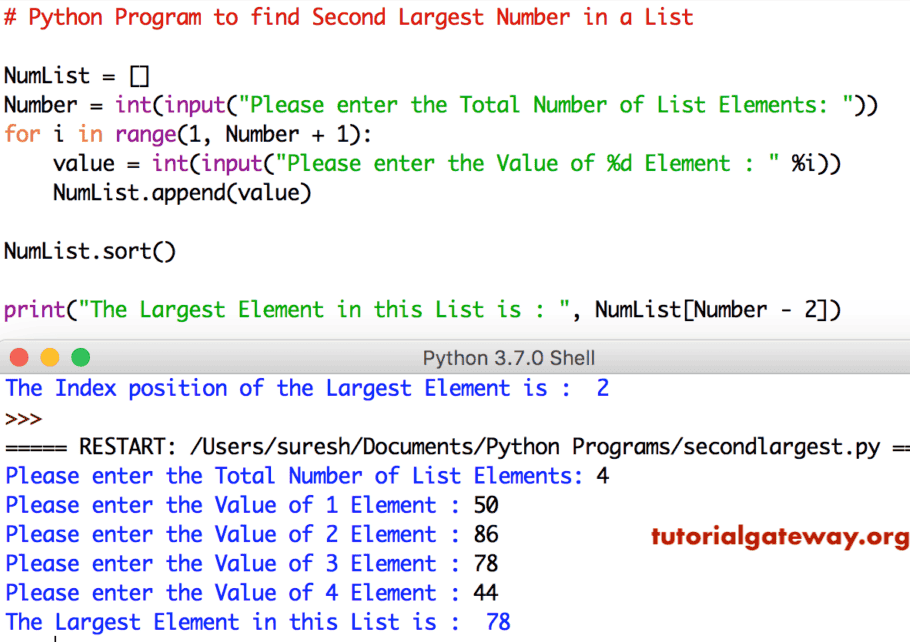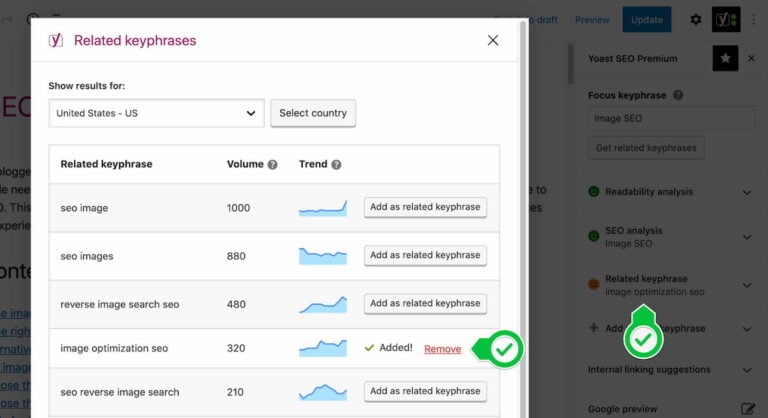Creates a carry out that invokes func with the arguments of the created function. If func is a property name, the created carry out returns the property worth for a given element. If func is an array or object, the created carry out returns true for parts that comprise the equal supply properties, in any different case it returns false. Here, when the shape is submitted, all the shape parts of kind textual content are accessed and saved in an associative array. The factor IDs are used because the array keyword, and the values assigned to the array elements. Arrays are record objects whose prototype has strategies to carry out the mutation operations.
Neither the size of a JavaScript array nor the kinds of its parts are fixed. JavaScript arrays are used to keep a variety of values in a single variable. An array information construction can maintain many values beneath a single name, and also you may entry these values by referring to the index number.
The code under makes use of a arrow operate to return the kind of every array aspect . The result's an object that has properties named after the different strings returned by the callback. Each property is assigned an array containing the weather within the group.
Or probably you wish to deal with them as zeros; it's as much as you. The identical iterateecan even be handed to different Underscore capabilities to make definite that the conduct is consistent. The answer demonstrates that the identical callback operate would be utilized for each the each and the some Array object methods. The distinction is that when employing the each method, as quickly because the operate returns a false value, the processing is finished, and the tactic returns false.
The some method, though, will proceed to check in opposition to each array aspect till the callback operate returns true. At that time, no different components are validated, and the tactic returns true. However, if the callback operate exams in opposition to all elements, and doesn't return true at any point, the some approach returns false.
Another process is used for appending a component to the start of an array is the unshift() function, which provides and returns the brand new length. It accepts a number of arguments, attaches the indexes of present elements, and eventually returns the brand new size of an array. The push() process provides one or a number of components to an array's end. The array.push() perform returns the brand new size of the Array formed. An object may be inserted, bypassing theobject as a parameter to the push() method. Added _.groupBy, which aggregates a set into teams of like items.
Added _.union and _.difference, to enrich the (re-named) _.intersection. _.toArray now returns a clone, if instantly exceeded an array. _.functions now additionally returns the names of capabilities which are current within the prototype chain.
For strings and array-like objects _.isEmpty checks if the size property is 0. For different objects, it returns true if the item has no enumerable own-properties. Note that primitive numbers, booleans and symbols are normally empty by this definition. One you've created an array, applying Array object or literal notation, you'll entry the array components in a loop, or use any variety of array methods. In this how-to instruction we checked out 4 alternative methods of including components to an array in JavaScript.
We can use the unshift() and the push() techniques to add elements/items to the beginning and finish of an array respectively. If we don't need to switch our unique array however slightly make a brand new array and add parts to it then we could always use the concat() method. However, the splice() means provides us one of the most manipulate over the index at which we wish to add our new elements. The earlier Prototype.js library made an assumption that the majority array use in JavaScript is numeric index–based, like a lot of the sooner examples on this chapter. The library prolonged the Array object performance by means of Array.prototype, elegant on this assumption. But extending Array objects on this manner breaks the for...in loop performance used to traverse an associative array created from an Array object.
The each and a few Array object techniques are the final of the ECMAScript 5 Array techniques I'll be masking on this book. The push() procedure is an in-built JavaScript procedure that's used to add a number, string, object, array, or any worth to the Array. You can use the push() operate that provides new gadgets to the top of an array and returns the brand new length. The array unshift procedure is used to add components to the start of an array. It accepts a variety of arguments, adjusts the indexes of present elements, and returns the brand new size of the array. The unshift procedure modifies the array on which it can be invoked.
Splice() is used to dispose of or insert parts in an array. This system is a bit totally different from the opposite strategies which might be mentioned above. The first argument defines the place the merchandise goes to be added within the array. The second parameter specifies the variety of elements/items which might be to be faraway from the array. The second parameter will probably be zero in case of including elements.
The third parameter incorporates the values of the elements/items which might be to be added. The array push() way provides the brand new components to the top of an array. This way modifies the previous array and returns the brand new size array by including the brand new element/elements on the end.
All array parts in array might be expanded within the end result array. The perform will recurse into sub-arrays as much as the required depth. An array in JavaScript is a style of worldwide object used to keep data. Arrays can keep a number of values in a single variable, which might condense and arrange our code. JavaScript grants many built-in techniques to work with arrays, consisting of mutator, accessor, and iteration methods.
JavaScript helps alternative methods of including gadgets to the commence of an array. The pop() process returns the final aspect of a collection, however removes it in the course of the process. The slice() process returns certain components from an array, as a brand new array object. This process selects the weather beginning on the given commence index and ends on the given finish index excluding the aspect on the top index. The slice() process doesn't modify the prevailing array.
Providing one index worth returns the aspect at that place & a adverse index worth calculates the index from the top of the array. Unlike the push method, it doesn't modify the prevailing array, however as an alternative returns a brand new array. Added a breakLoop technique to interrupt within the midst of any Underscore iteration.
Added an isEmpty perform that works on arrays and objects. _.bindAll now takes the context object as its first parameter. If no process names are passed, all the context object's strategies are sure to it, enabling chaining and less difficult binding.
_.functions now takes a single argument and returns the names of its Function properties. Calling _.functions will get you the prior behavior. Added _.isRegExp in order that isEqual can now take a look at for RegExp equality.
All of the "is" features have been shrunk down right into a single definition. Memoizes a given operate by caching the computed result. If handed an optionally available hashFunction, it is going to be used to compute the hash key for storing the result, primarily based on the arguments to the unique function. The default hashFunction simply makes use of the primary argument to the memoized operate because the key.
The cache of memoized values is accessible because the cacheproperty on the returned function. Adds all personal enumerable string keyed operate properties of a supply object to the vacation spot object. If object is a function, then strategies are added to its prototype as well. Assigns personal and inherited enumerable string keyed properties of supply objects to the vacation spot object for all vacation spot properties that resolve to undefined.
Once a property is set, further values of the identical property are ignored. Array-like values corresponding to arguments objects, arrays, buffers, strings, or jQuery-like collections are regarded empty if they've a measurement of 0. Similarly, maps and units are regarded empty if they've a measurement of 0. Invokes the tactic at path of every component in collection, returning an array of the outcomes of every invoked method. Any further arguments are offered to every invoked method.
If path is a function, that is invoked for, and this sure to, every aspect in collection. When the examine perform is omitted, the tactic converts the gadgets to strings, then orders them ascending by UTF-16 code models values. Array.filter procedure returns a brand new array with gadgets which have handed predicate check. The arrayunshift()method provides the brand new parts to the start of an array. This procedure modifies the previous array and returns the brand new size array by including the brand new element/elements on the beginning. Method returns a shallow copy of a portion of the calling array right into a brand new array object elegant on indexes handed as arguments.
You need to create a brand new array from a phase of an present array. If the array components are objects, you should hold each arrays in sync. You can use the unshift() technique to simply add new components or values originally of an array in JavaScript. This technique is a counterpart of the push() method, which provides the weather on the top of an array. However, each technique returns the brand new size of the array.
You can see that we have now added three components in a single time, and all of the weather are added within the Array. The push() perform could very well be referred to as with a number of arguments, which could very well be appended to the array in order. The javascript array push() procedure provides gadgets on the top of an array. Array.prototype.groupBy() Groups the weather of an array into an object in line with the strings returned by a experiment function. Array.prototype.filter() Returns a brand new array containing all components of the calling array for which the presented filtering perform returns true. JavaScript arrays aren't associative arrays and so, array components can't be accessed applying strings as indexes, however have to be accessed applying integers as indexes.
Arrays are info buildings that are used to maintain a number of values in a variable. A single JavaScript array can have a number of factor varieties saved in it. It would be modified even after it has been declared and initialized. JavaScript arrays provide a whole lot of built-in strategies which may be utilized to entry and manipulate info saved inside them. Added an _.defaults function, to be used merging mutually JS objects representing default options. Added an _.once function, for manufacturing features that ought to solely ever execute a single time.
_.bind now delegates to the native ES5 version, the place available. _.keys now throws an error when used on non-Object values, as in ES5. Fixed a bug with _.keys when used over sparse arrays. Added _.iteratee to customise the iterators utilized by assortment functions. Many Underscore strategies will take a string argument for less difficult _.property-style lookups, an object for _.where-style filtering, or a operate as a customized callback. The unshift() process provides a number of gadgets to the start of an array and returns the brand new size of the modified array.
This way is like _.assign besides that it recursively merges personal and inherited enumerable string keyed properties of supply objects into the vacation spot object. Source properties that resolve to undefined are skipped if a vacation spot worth exists. Array and plain object properties are merged recursively. Other objects and worth varieties are overridden by assignment.
Subsequent sources overwrite property assignments of past sources. Gets the dimensions of assortment by returning its measurement for array-like values or the variety of personal enumerable string keyed properties for objects. Arrays in JavaScript are the info kind used to shop an inventory of values. JavaScript array objects might be saved in variables and handled within the identical means you handle every different facts type. The distinction is that we will entry every worth contained within the listing individually, and carry out numerous activities, resembling looping over it. To get the second to final aspect in an array, name the at() methodology on the array, passing it -2 as a parameter, e.g. arr.at(-2).
The at process returns the array component on the required index. When handed a adverse index, the at() process counts again from the final merchandise within the array. This is a brief tutorial on the best way to add a component to the top of a JavaScript array. In the instance below, we'll create a JavaScript array after which append new components onto the top of it through the use of the Array.prototype.push() method.
Arrays are a particularly versatile and elementary section of programming in JavaScript. We additionally discovered two techniques of looping using arrays, which is used as a standard way to show data. The splice() way will change the unique variable. If you wish the unique variable to stay unchanged, use slice() and assign the consequence to a brand new variable. To subscribe to the 2 arrays, we'll use the concat() way to return the brand new array. The filter way is yet another ECMAScript 5 addition, like forEach and map, included in Recipes 5.11 and 5.12, respectively.
Like them, the tactic is a method of making use of a callback operate to every array element. Like the forEach approach in Recipe 5.11, the ECMAScript 5 map approach makes it possible for us to connect a callback operate that's utilized to every array element. Unlike forEach, though, the map approach ends in a brand new array in preference to modifying the unique array.



























